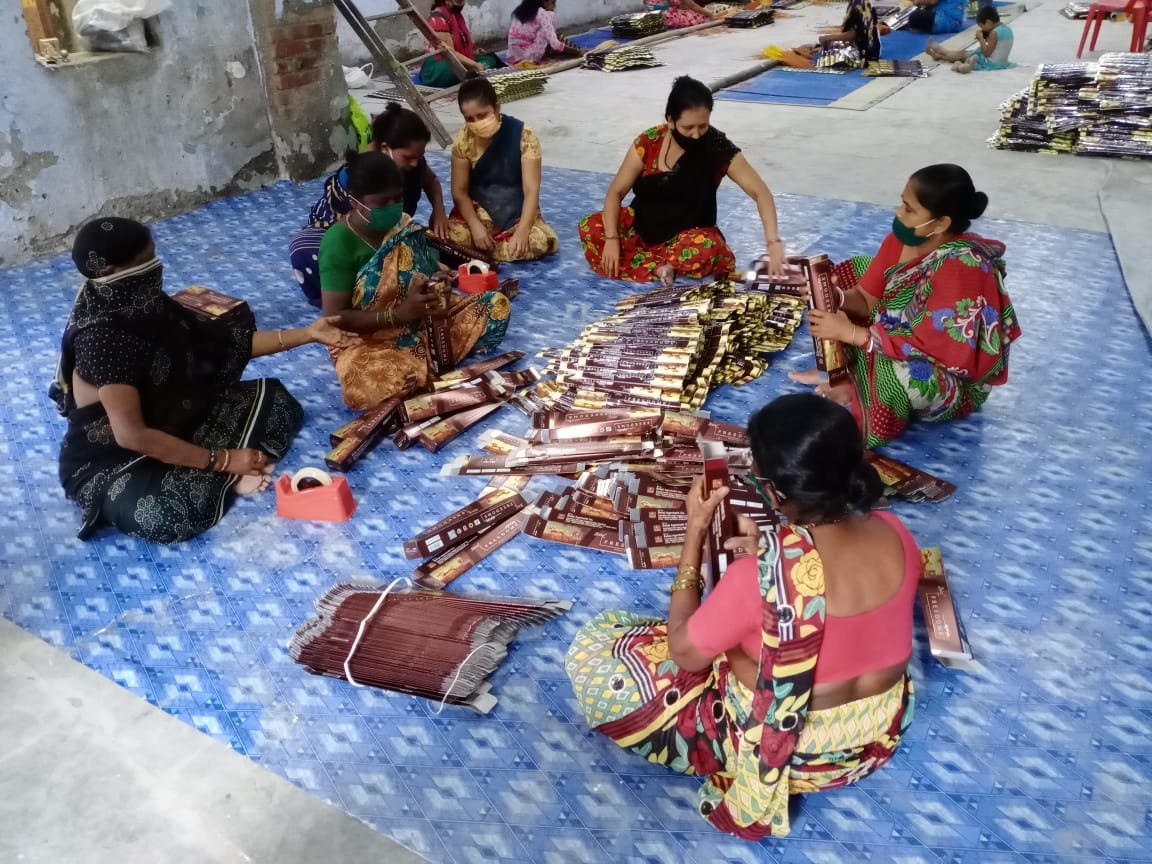Dr Swathi Khan has been active in the industrial-and-cargo hub on the outskirts of Mumbai, helping men and women sort out marital disputes, rescuing children from anti-social surroundings and even offering opportunities for women in the red-light area
Ashok Kumar | Clarion India
MUMBAI – For Dr Swathi Khan, Bhiwandi, the sprawling industrial and transport hub on the outskirts of Mumbai, is like a second home. After managing a super-speciality hospital in this extended suburb for about four years from 2012, she decided to set up Shree Sai Seva Sanstha, a not-for-profit NGO to work for the welfare of women in and around Bhiwandi.
Over the years, Dr Khan and her organisation has been helping women and young girls in the area, encouraging them to sort out disputes within the family and lead normal lives. “There was this young woman who was depressed after her marriage,” Dr Khan told Clarion India. “She got my number and called me every day, explaining to me her woes.”
The calls continued for long and Dr Khan guided and motivated her. The woman set up a tailoring class and began leading an independent life. She also got married again after the previous one failed. “She is very happy now and also has a baby child,” points out Dr Khan. “We have not yet met, but she calls me regularly, updating me about her family and her life.”
Her organisation reaches out to needy women in Bhiwandi, motivating and encouraging them to start out on their own. Self-employed women’s groups are set up and summer camps are also organized for the children. “We conduct tailoring and beauty parlour courses, teach women how to engage in different activities and even encourage them to write recipe books,” says Dr Khan.

The Sanstha members also hold medical check-up camps, visit women in hospitals where they are undergoing treatment, and for those in maternity homes, provide clothes for the newborns. “And whenever some woman asks us to help in sorting out disputes with her husband, we try to bring them together and ensure they are engaged in understanding each other. However, in some complicated cases where the woman does not get justice, we help her till the matter is resolved.”
Of course, one of the biggest challenges is helping sex workers and their children in overcoming the formidable problems that they encounter in their lives. The COVID-19 crisis earlier this year saw a few hundred destitute women, mostly sex workers suffer as their incomes fell sharply. The women, mostly migrants from Karnataka, Andhra Pradesh, Odisha, West Bengal and even from Nepal and Bangladesh, have been in the trade for decades.
“Some of the women have given up their trade and we encourage them to take up other work including selling vegetables, fruits and milk,” explains Dr Khan. “We also got a contract to make ‘agarbattis’ and many of these women were involved in it.” The NGO pays them Rs 210 a day for working from 10 to 5. Later, the women also sit through a counselling and motivation session for about 30 minutes.
Many of the women cry during these sessions, says the activist, who is closely involved in encouraging the women to change their profession and seek other means of livelihood. Many of the women above 30 are keen on taking up other jobs as well. Dr Khan has set up an office in Hanuman Tekdi, the place where the women have been operating for years. Fortunately, the police and local officials have also been helping her and her team in reaching out to the sex workers and encouraging them to change their profession.
She, however, feels the officials should be more active in helping the women, provide basic skill training programmes and also job opportunities for them. As Bhiwandi is one of the busiest trucking terminals in India, with thousands of men involved in operating the vehicles camping there daily, Hanuman Tekdi is frequented quite often. And the women also earn around Rs5,000 or even more daily. Consequently, it becomes a major challenge to draw the younger women away from the trade, explains Dr Khan, who is however, determined to help as many women from the clutches of the trade.



